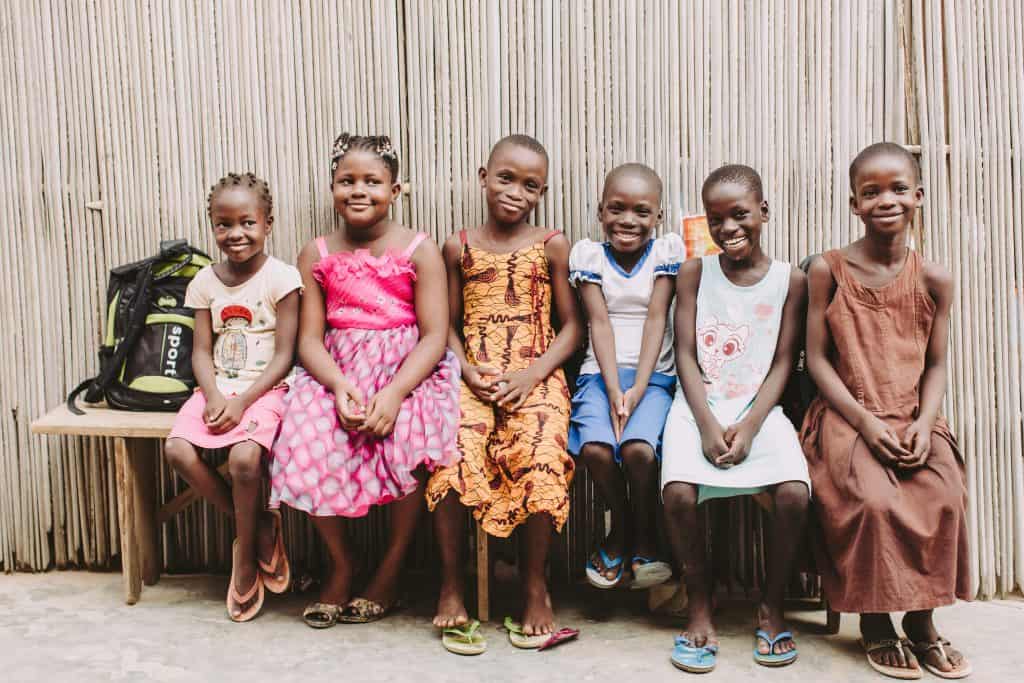Head to toe. Mind, body, heart and soul. When it comes to releasing a child from the most extreme poverty, it’s important to address a child’s needs holistically. We dig deep into what it takes to make tiny humans “unfold” into healthy people. People who have the right tools to break the negative cycles poverty has brought into their lives.
This month for our Totally Worth It series, we’re focusing on what healthy child development looks like, current research in the field, and stories of those who work selflessly to help unfold the little ones in our Compassion programs.
Child Development Topics Worth Learning About
The Wheel Goes Round and Round
Because poverty is multifaceted, a wheel is a great way to visualize the complex problem. Learn the different spokes that make up the poverty wheel — social, educational, spiritual, health, environmental and economic — and how we address children’s needs in all facets.
Why this is worth it: If you sponsor a child or young adult or have ever donated, this is how your generous contributions are used. We don’t give handouts. We work to attack the disease of poverty on all levels. It’s how we see change happen in the developing world.
Grey Matter Matters
Studies in the past few years in the area of the neuroscience of poverty have shown important findings on how poverty affects the brain. Some conditions caused by poverty “can affect the interactions, formation and pruning of connections in the young brain.” Also, research is showing that due to environmental influences, impoverished children may actually have less grey matter in their hippocampus, frontal lobe and temporal lobe.
Why this is worth it: The areas of a young child’s brain that control important things like memory, decision making, problem solving, impulse control, judgment, and social and emotional behavior aren’t getting the healthy external factors to help them develop properly. But there’s good news: The brain never quits developing. With the right interventions early on, a baby’s brain can begin to develop the right connections to handle adversity. This type of research is helping schools, governments and outreach programs rethink how poverty can be addressed in their communities.
The Early Bird Does Get the Worm
“For every dollar invested in the first 1,000 days of life, a country receives about $8 in returns,” says Yale School of Public Health Professor Rafael Pérez-Escamilla, Ph.D. “The social cost of inaction is enormous.”
Pérez-Escamilla recently co-authored two articles for the 2016 Lancet Series on early childhood development. This latest series emphasizes that development begins at conception and nurturing care below the age of 3 is crucial to addressing poverty.
“The most formative experiences of young children come from nurturing care received from parents, other family members, caregivers, and community-based services. Nurturing Care is characterized by a stable environment that promotes children’s health and nutrition, protects children from threats, and gives them opportunities for early learning, through affectionate interactions and relationships. Benefits of such care are lifelong, and include improved health, well-being, and ability to learn and earn.”
Why this is worth it: We couldn’t agree more. This is the heart and soul of our Child Survival Program that works with expectant mothers and their babies through their formative years.
Learning Mad Skills
When we say that children in poverty need to be equipped with the right tools, we sometimes mean quite literally the RIGHT TOOLS.
People Who Do the Unfolding
Meet some of our brave and generous staff and tutors investing in the futures of the children and families in the communities in which we work. These are the people who make sure every student is known, loved and protected.
-
- A Life of Hope in a World Destroyed by Drugs
Even though her own story is still being written, 19-year-old Compassion alumna, Angelyn, is investing in the children at her child development center as a tutor. Providing hope because it was first given to her.
- A Life of Hope in a World Destroyed by Drugs
-
- Behind the Scenes Heroes
What does it take to run a child development center in Togo? Why not hear it from nine staff members themselves!
- Behind the Scenes Heroes
-
- Tsehaywota Taddesse: How Shepherding in Ethiopia Prepared Me for Leadership
The Director of Compassion Ethiopia once spent his days with sheep, and now he spends his days shepherding a different kind of flock.
- Tsehaywota Taddesse: How Shepherding in Ethiopia Prepared Me for Leadership
- Flooding in Peru: I Never Lost My Hope
Compassion tutors in Peru were teaching a home class to mothers and babies when the floodwaters rose and forced them onto their roofs for 12 hours.
A Sponsor’s Role in Child Development
Sponsorship through Compassion is unique. While money is necessary to fuel the development of children through our local church partners, we believe it’s the relationships that have the lasting impact. Relationship with the child development staff and relationship with their sponsors.
The Power of the #CompassionLetter
Compassion letters unite families across the globe in a unique and empowering relationship. We love when the whole family gets involved!
A post shared by Allison (@outoftheboxmama) on
The Power of the Prayers of Sponsors
Easter Sunday marked a month since the closure of our program in India. We have a prayer wall here at our offices in Colorado Springs to share sponsors’ prayer requests. It reminds us to keep India close to our hearts each day.
To help unite our prayers for the children, families and churches in India, we’ve created a 30-day prayer guide. Will you continue to pray with us?

